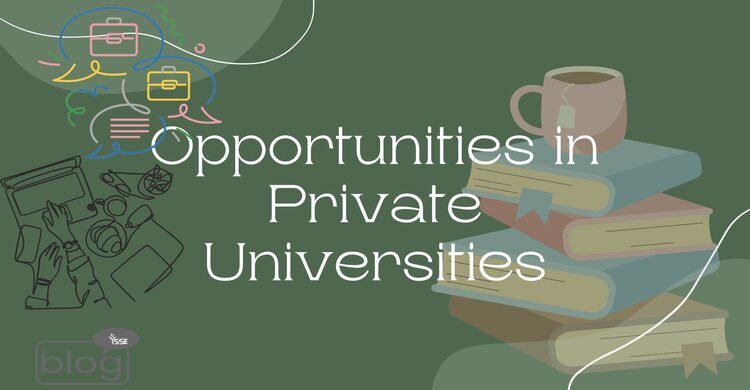It’s thrilling to embark on a new phase in your academic career, but there are always financial considerations to consider. But fear not—due to their many benefits, private universities are becoming more and more popular and an ideal option for students. Private universities compete with public ones, offering a lively campus culture, cutting-edge facilities, eminent teachers, and a dedication to academic quality.
The cherry on top? Dreams of higher education become a reality for students attending private universities, which can lessen the financial load by offering scholarships and waivers.
Now let’s delve into and explore the fascinating world of private university!
Understanding Scholarships and Waivers:
Private universities provide scholarships and waivers to worthy students in recognition of their unique requirements, financial necessity, and academic ability. Merit-based and need-based are the two main categories into which these financial aids usually fall.
- Merit-BasedScholarships:
Academic Achievement: Merit scholarships often hinge on high school academic performance or success in university admission tests.
Admission Test Performance: Excelling in admission tests can unlock substantial scholarships, given the alignment with the syllabus covered in O and A levels.
2.Need-Based Scholarships:
Financial Distress: Need-based scholarships cater to students facing financial challenges, whether due to sudden crises or prolonged adversity.
Diversity and Representation: Some private universities extend scholarships to underrepresented groups, minorities, and females, fostering inclusivity in higher education.
Navigating the Scholarship Landscape:
Securing a scholarship in a private university requires strategic planning and a thorough understanding of eligibility criteria. Here’s a comprehensive guide:
1.Academic Requirements:
Maintain a competitive GPA in both SSC and HSC exams. English medium students may also need specific grades in O and A level subjects.
- Admission Test Performance:
Diligent preparation for admission tests significantly increases the chances of securing merit-based scholarships.
3.Financial Documentation:
Be prepared to furnish necessary financial information for need-based scholarships, including details about parents’ occupations, property, and bank statements.
4.Explore Special Scholarships:
Investigate unique scholarships designed for female students, ethnic minorities, refugees, and low-income individuals to ensure a thorough exploration of available opportunities.
The Changing Landscape:
Private university landscapes have changed significantly, casting doubt on the idea that their motivations are limited to finances. Private universities are required by government orders to set aside a certain number of their seats for students with limited resources and children of freedom fighters. This dedication to diversity and accessibility is a big step toward making accessible education.
Private universities do, however, provide more than just compliance. By offering scholarships and waivers, they are essential in removing financial obstacles and increasing access to education. These chances are more than just financial aid for aspirant students; they are step stepping stones the fulfillment of their academic aspirations.
Collaboration for a Brighter Future:
While private universities independently contribute to inclusive education, collaboration with public universities can further enhance accessibility for financially disadvantaged students. This partnership, fostering a level playing field for students from all backgrounds, holds immense potential for creating a more equitable educational landscape.
Education can change lives, as evidenced by private universities are changing their higher education offerings. Together, let’s take advantage of the opportunities provided by private colleges and build a society in which everyone, regardless of finances, has access to education. Are you on board with me?
To read more blogs, click here
Writer,
Sumaiya Islam Sonali
Intern, Content Writing Department
YSSE

